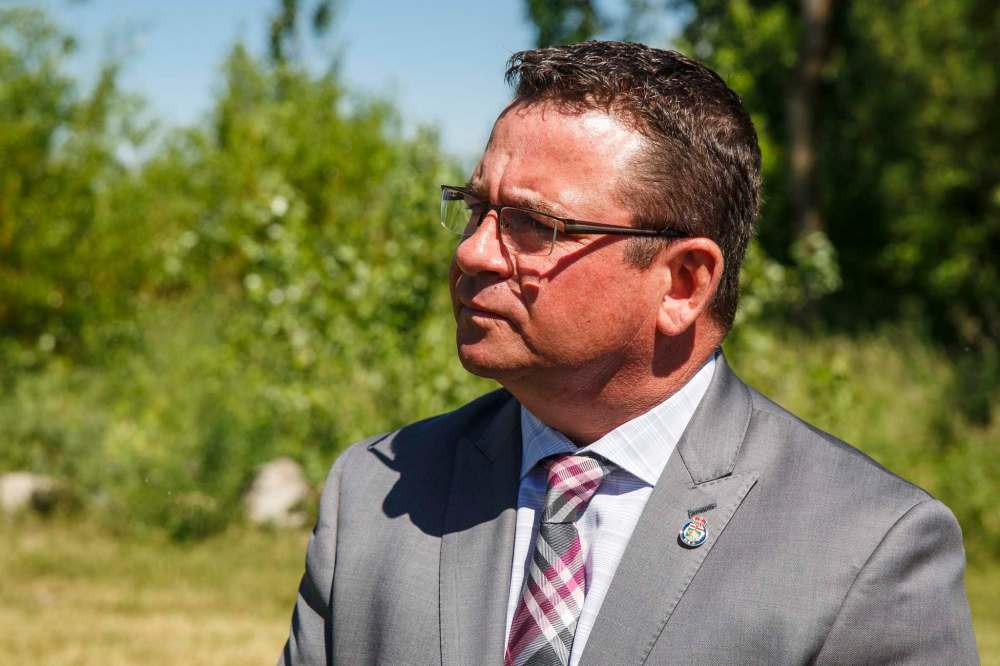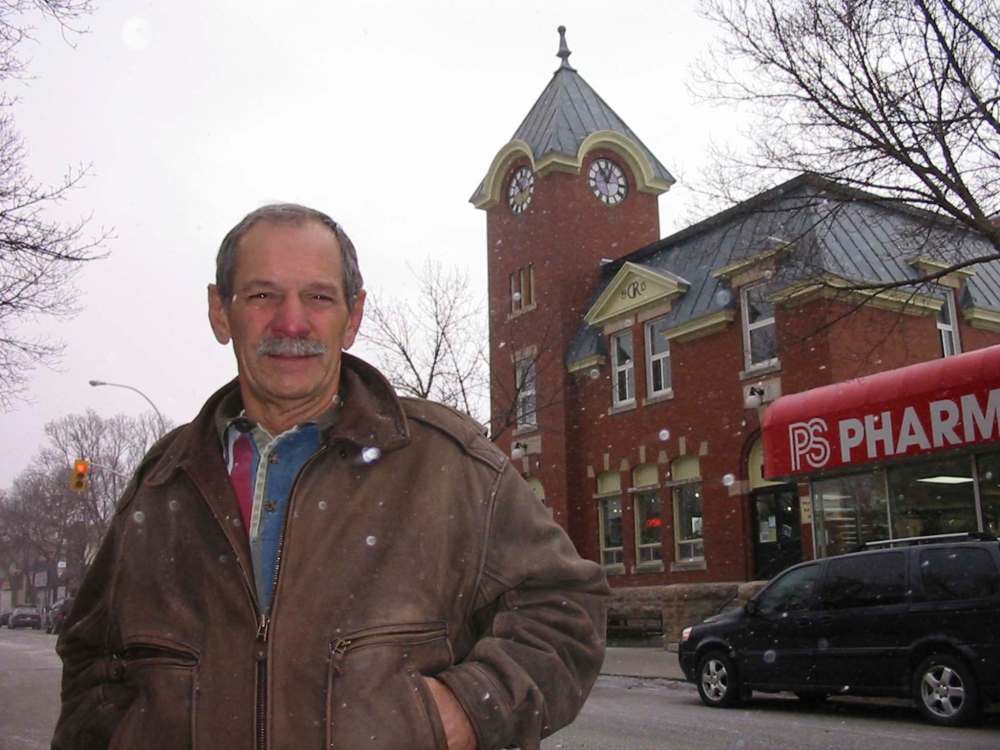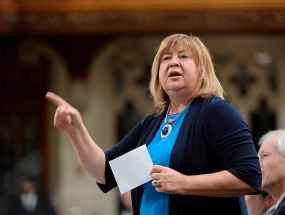Manitoba municipalities weigh plebiscites on retail pot sales
Read this article for free:
or
Already have an account? Log in here »
To continue reading, please subscribe:
Monthly Digital Subscription
$19 $0 for the first 4 weeks*
- Enjoy unlimited reading on winnipegfreepress.com
- Read the E-Edition, our digital replica newspaper
- Access News Break, our award-winning app
- Play interactive puzzles
*No charge for 4 weeks then billed as $19 every four weeks (new subscribers and qualified returning subscribers only). Cancel anytime.
Read unlimited articles for free today:
or
Already have an account? Log in here »
Hey there, time traveller!
This article was published 18/06/2018 (2138 days ago), so information in it may no longer be current.
Various Manitoba municipalities are considering whether to hold a plebiscite on retail cannabis sales after legalization, but some mayors are more worried about whether the province will help foot the bill for the potential costs of legalized cannabis.
Gimli councillors were opposed late last year to cannabis stores, but mayor Randy Woroniuk said that was because they didn’t have enough information from the province to decide.
“Whether we’re going to hold a plebiscite? I have to talk to council about that,” he said. “But people have got to understand, these plebiscites aren’t free.”

Woroniuk said he’s mainly concerned with how Gimli will afford the presumed expenses of the federal government’s marijuana legalization law. Potential costs to communities inclulde policing and bylaw enforcement.
“I believe that the taxpayers of the RM of Gimli should not be saddled with unknown costs for a retail cannabis shop,” he said. “And if we are going to be saddled with those costs, the government needs to (give us) part of that 25 per cent (federal excise tax on cannabis sales).”
Portage La Prairie mayor Irvine Ferris said the town would “absolutely not” hold a plebiscite on the issue, and that retail cannabis sales will be allowed.
“We don’t want businesses here in Portage to miss out on business opportunities when, of course, we would have the costs associated with (legalization) whether we have retail here or not,” he said.
The issue of local plebiscites, Ferris said, “has taken away from some things that most mayors I’ve talked to feel are a lot more important, and that is a cost-sharing agreement with the province of Manitoba.”
The Association of Manitoba Municipalities “continues to urge the provincial government to co-develop a revenue-sharing model that respects municipal authority and increased costs that will be incurred due to the legalization and regulation of recreational cannabis,” said AMM president Chris Goertzen in an emailed statement.
Since recreational cannabis is not yet legal, Municipal Affairs Minister Jeff Wharton said, “there is no provincial revenue from cannabis, just costs — including setting up the regulatory framework for Manitoba’s hybrid retail and distribution model.”
“Following legalization, it will be important for municipalities to track their actual costs and any revenues they may generate from municipal business taxes and fees on cannabis retailers,” said Wharton in a statement.
“This information will inform our approach to future discussions on the cannabis industry and its impact on our communities.”

The AMM is also concerned that municipalities choosing to ban cannabis sales altogether will be required to hold a plebiscite on the question by 2022. Requiring a referendum in those cases, said Goertzen in his statement, “goes against the spirit of the provincial government’s commitment to give more say to local councils.”
In a statement, a provincial spokesperson confirmed that municipalities banning cannabis sales will indeed have to put the question to voters.
Although the costs of holding cannabis plebiscites will fall on municipalities, the spokesperson said the province it is formalizing the plebiscite provisions in the Safe and Responsible Retailing of Cannabis Act now so that local governments can schedule the ballot questions along with municipal elections taking place on Oct. 24.
“These provisions mirror the longstanding local option provisions for liquor retail sale and service and video lottery gaming, which have worked well for Manitobans and their communities,” wrote the spokesperson.
Morden mayor Ken Wiebe said city council planned to discuss the issue of a plebiscite on Monday night, while Thompson mayor Dennis Fenske said the city doesn’t intend to hold a plebiscite. Speaking as the mayor of Steinbach, Chris Goertzen said Steinbach city council hasn’t yet discussed the issue.
The city of Winkler has already decided to put the question of retail cannabis sales to voters during the October elections, said mayor Martin Harder.
“We never wanted to do that, however, we had people who are interested in going and getting the 20 per cent of signatures required to hold a plebiscite. And we said, ‘Well, why in the world do we make somebody work for a couple of months to get signatures and then hold a plebiscite anyway?'”
Future legal cannabis retailers have already expressed interest in potential Winkler locations, said Harder.
“We are creating the bylaws required, and we’re working on the zoning, we have a designated zone where that facility would be available.”

Beausejour mayor Ed Dubray said the town doesn’t plan to hold a plebiscite, since city council already decided that retail cannabis sales should be permitted subject to existing zoning bylaws. Even though Beausejour councillors were unofficially opposed to retail cannabis sales last December, Dubray said the town’s leadership changed its mind in late January after gathering new information.
“We went back and we held a special meeting with the local MLA and the RCMP detachment here in regards to allowing cannabis, and from that meeting we went back, at a later date at a regular council meeting, and we passed a resolution to allow,” said Dubray.
Lac du Bonnet mayor Gordon Peters said the town will “probably” end up holding a retail cannabis sales plebiscite along with its regular October elections, but that the decision has yet to be made by council.
“We’re getting mixed messages,” said Peters. “There’s people that want to see it purely from a business perspective, they want to see that opportunity. There’s others that absolutely see the problem with the whole cannabis issue, and that legalizing it certainly isn’t going to make it go away or improve in any way, because it doesn’t change the use of cannabis.”
solomon.israel@freepress.mb.ca
@sol_israel








